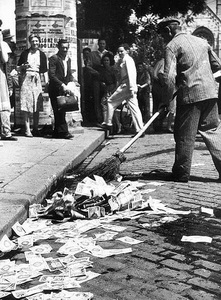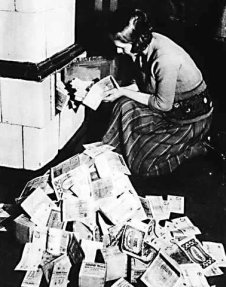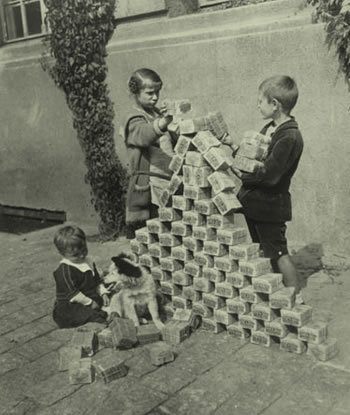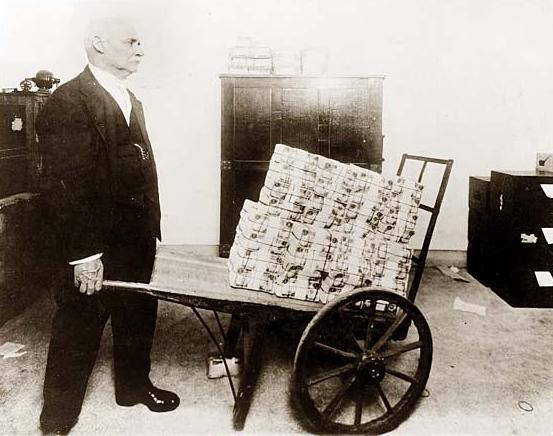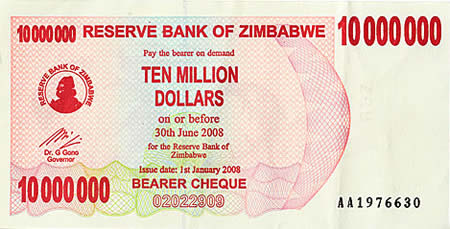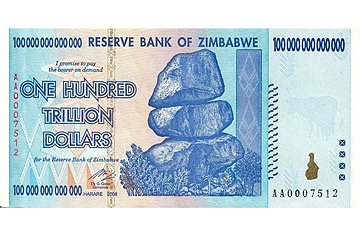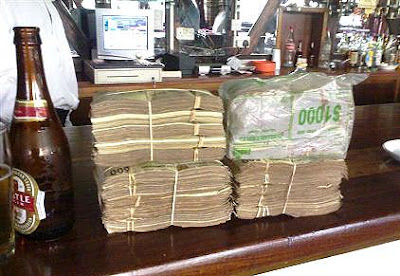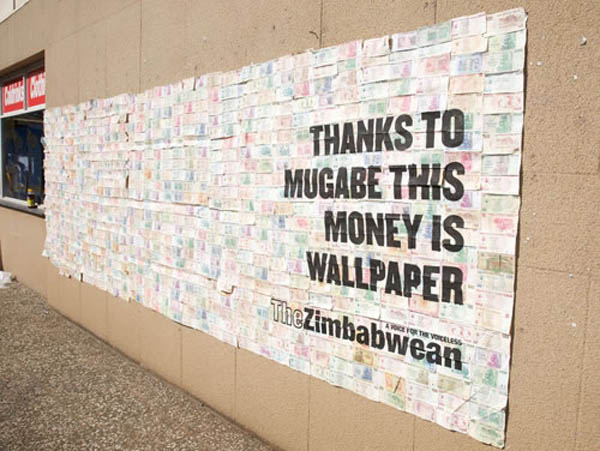Worthless Currencies June 12, 2012
Author: Beach Combing | in : Actualite, Contemporary , trackbackAs Beach writes Mrs B is travelling on a plane to [first destination deleted] to open a bank account in [second destination deleted] to get the Beachcombing family ‘fortune’ (ahem) as far as possible from the Euro Zone. It may or may not work as, while the Italian State has provided lots of identification documents, the officials in the two countries in question do not read Italian and are not known for their patience with Mediterranean sorts: Mrs B is very Mediterranean from the BVM smile down to the long legs and the hail marys.
The money in question is a modest amount, but enough to get the family by in an emergency, a half cracked nest egg whose yolk has dribbled down from several different sources. In this sum are: a few lira from a scion of the last of the Venetian nobility; quite a lot of money from a family that, c. 1900, sold dodgy concrete to the Italian state in one of its most important ports; a few pounds from a school teacher who taught English in 1930s Wales; royalties from Beach’s books; and a dozen sovereigns from the treasures of the now vanished squirearchy of Norfolk (‘King, God and the Fens!’). If you pray then please pray, if you cross fingers then please do so, if you sacrifice goats, then we’ll cover the transport expenses and any parking fees…
Anyway, in celebration of Mrs B flight into the unknown – if this was a film she’d meet Johnny Depp in Malta and never come back – and as one more hiss at the Euro Beach wanted to do honour today to worthless currencies of the world. Through history many different monete have risen and fallen. But since the Romans discovered how to debase gold and silver, western states and their successors in other continents have employed money as a source of income in its own right. The results, particularly when matched with incompetent budgeting and Keynesian economics – QE anyone – have been horrendous.
Here are three pictures from the ‘wonder’ years of the Reich-mark. The most famous is the man with the wheelbarrow, though enjoy too the woman using the notes as cooking fuel and the children using them as Lego bricks.
Here, instead, are some recent banknotes from Zimbabwe, a country that Beachcombing has a good deal of affection for and whose senseless suffering causes him much angst. First is the ten million Z dollar note, in the good old days when this was real money and could buy you a loaf of bread.
Here instead is ten trillion dollars, which was good for a couple of slices of a loaf of bread. And here below is how many notes you needed to buy a bottle of beer in 2008, no really…
This final image offers the only useful act possible with these ridiculous notes. They have been pasted together as part of a poster campaign to get Mugabe out of office. Good luck with that…
Any other unusual worthless currency pictures do let us know: drbeachcombing AT yahoo DOT com
***
30 June 2012: Ricardo writes Please, remember Hungarian pengo… Then RuthTheUnstopablyCurious: ‘I read – somewhere – an explanation of the term worthless as a Continental a bit different from the fuzzy reasons given in my (ahem! quite dated) high school history classes. One fuzzy high school example: “continentals became worthless because people came to believe that they would not be redeem their bills for gold and silver coins”. Of course the Ludwig von Mises Institute has a more scholarly take on it: And yet – and I do wish I could find the source – there was some evidence that the Bank of England, even after the termination of hostilities, was delivering counterfeit Continentals to the former colonies in a successful effort to destabilize the new government, the hope being that the former colonies would come begging back into the fold and a resumption of BoE’s lucrative privileges in N America. I don’t know if that is true or not, but I wouldn’t put it past the BoE – or any large bank, back then or nowadays. Now you’ve got me wondering just how much ANY of these factors played into this particular event – perhaps all of them to one degree or another.’ Thanks Ruth and Ricardo!

